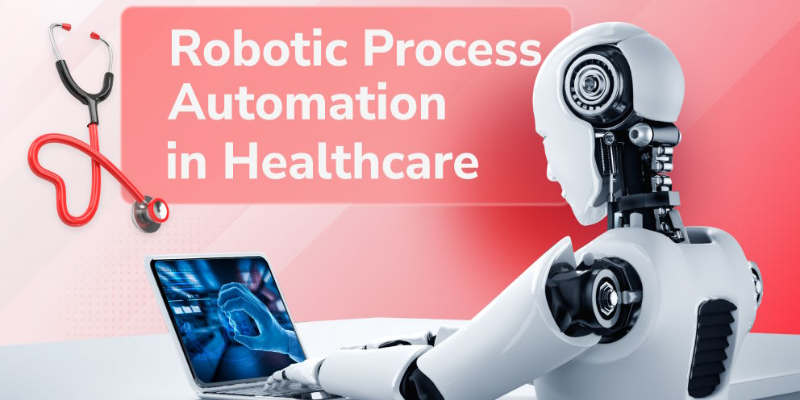
The healthcare industry is constantly evolving, driven by the need for improved patient care, efficient processes, and cost management. Robotic Process Automation (RPA) is one of the transformative technologies revolutionizing healthcare by automating routine tasks, reducing errors, and freeing up medical professionals to focus on patient care. RPA Training in Chennai at FITA Academy can provide the necessary knowledge and expertise to leverage these skills. This blog explores how RPA is utilized in the healthcare industry, highlighting its applications, benefits, and future potential.
RPA in Healthcare
Robotic Process Automation (RPA) involves the use of software robots to automate repetitive, rule-based tasks traditionally performed by human workers. In healthcare, RPA is becoming an essential tool to streamline operations, enhance efficiency, and improve patient outcomes. By automating administrative tasks, RPA allows healthcare providers to focus more on patient care and less on paperwork.
Applications of RPA in Healthcare
1. Patient Scheduling and Appointment Management
One of the most common applications of RPA in healthcare is automating the scheduling and management of patient appointments. RPA bots can handle appointment bookings, reminders, and cancellations efficiently. This not only reduces the administrative burden on staff but also minimizes errors and enhances patient satisfaction.
2. Claims Processing and Billing
The healthcare industry deals with a massive volume of insurance claims and billing processes. RPA can automate the extraction, validation, and submission of claims, ensuring accuracy and reducing the time taken to process them. This results in faster reimbursements and fewer claim denials, ultimately improving the financial health of healthcare providers.
3. Patient Data Management
RPA bots can streamline the management of patient data by automating data entry, updating electronic health records (EHRs), and ensuring data accuracy. This reduces the risk of human errors and enhances data integrity, which is crucial for delivering high-quality patient care.
4. Regulatory Compliance
Healthcare providers must adhere to strict regulatory requirements and standards. RPA helps ensure compliance by automating the monitoring and reporting of compliance-related activities. This includes tasks such as auditing medical records, tracking patient consent forms, and generating compliance reports, thereby reducing the risk of non-compliance and associated penalties.
5. Inventory and Supply Chain Management
RPA can optimize inventory management and the healthcare supply chain by automating the tracking of medical supplies, ordering new stock, and managing vendor relationships. This ensures that healthcare facilities are always stocked with the necessary supplies, reducing the risk of shortages and improving overall operational efficiency.
6. Patient Onboarding and Discharge Processes
RPA can streamline the patient onboarding and discharge processes by automating the collection and processing of patient information, generating necessary documentation, and updating medical records. This reduces the time spent on administrative tasks and ensures a smooth and efficient patient experience. Taking an RPA Course can equip healthcare professionals with the skills needed to implement these automation solutions effectively.
Benefits of RPA in Healthcare
1. Improved Efficiency
By automating repetitive and time-consuming tasks, RPA significantly enhances the efficiency of healthcare operations. This allows healthcare providers to allocate their resources more effectively and focus on delivering high-quality patient care.
2. Reduced Errors
RPA eliminates the risk of human errors in tasks such as data entry, claims processing, and patient scheduling. This leads to more accurate and reliable operations, improving overall patient outcomes and reducing the likelihood of costly mistakes.
3. Cost Savings
Automating administrative tasks with RPA can result in significant cost savings for healthcare providers. By reducing the need for manual labor and minimizing errors, RPA helps lower operational costs and increases profitability.
4. Enhanced Patient Experience
RPA improves the patient experience by ensuring timely and accurate scheduling, billing, and data management. This leads to shorter wait times, fewer billing errors, and a more streamlined patient journey.
5. Better Compliance and Risk Management
RPA ensures that healthcare providers adhere to regulatory requirements by automating compliance-related tasks. This reduces the risk of non-compliance and associated penalties, enhancing overall risk management.
Future Potential of RPA in Healthcare
The future of RPA in healthcare looks promising, with advancements in artificial intelligence (AI) and machine learning (ML) poised to enhance its capabilities further. Integrating RPA with AI and ML can enable more sophisticated automation, such as predictive analytics for patient care, personalized treatment plans, and advanced diagnostics. Additionally, adopting RPA in telemedicine and remote patient monitoring can improve healthcare delivery, especially in underserved areas. A Training Institute in Chennai can provide the necessary education and resources to keep healthcare professionals updated on these emerging technologies.
Robotic Process Automation transforms the healthcare industry by automating routine tasks, improving efficiency, and enhancing patient care. From patient scheduling and claims processing to data management and regulatory compliance, RPA is utilized in various applications to streamline operations and reduce costs. As technology continues to evolve, the potential for RPA in healthcare is immense, promising even greater advancements in the future. Embracing RPA can help healthcare providers deliver better patient outcomes, achieve higher operational efficiency, and stay competitive in an ever-changing industry.
Also Check: RPA Interview Questions and Answers
